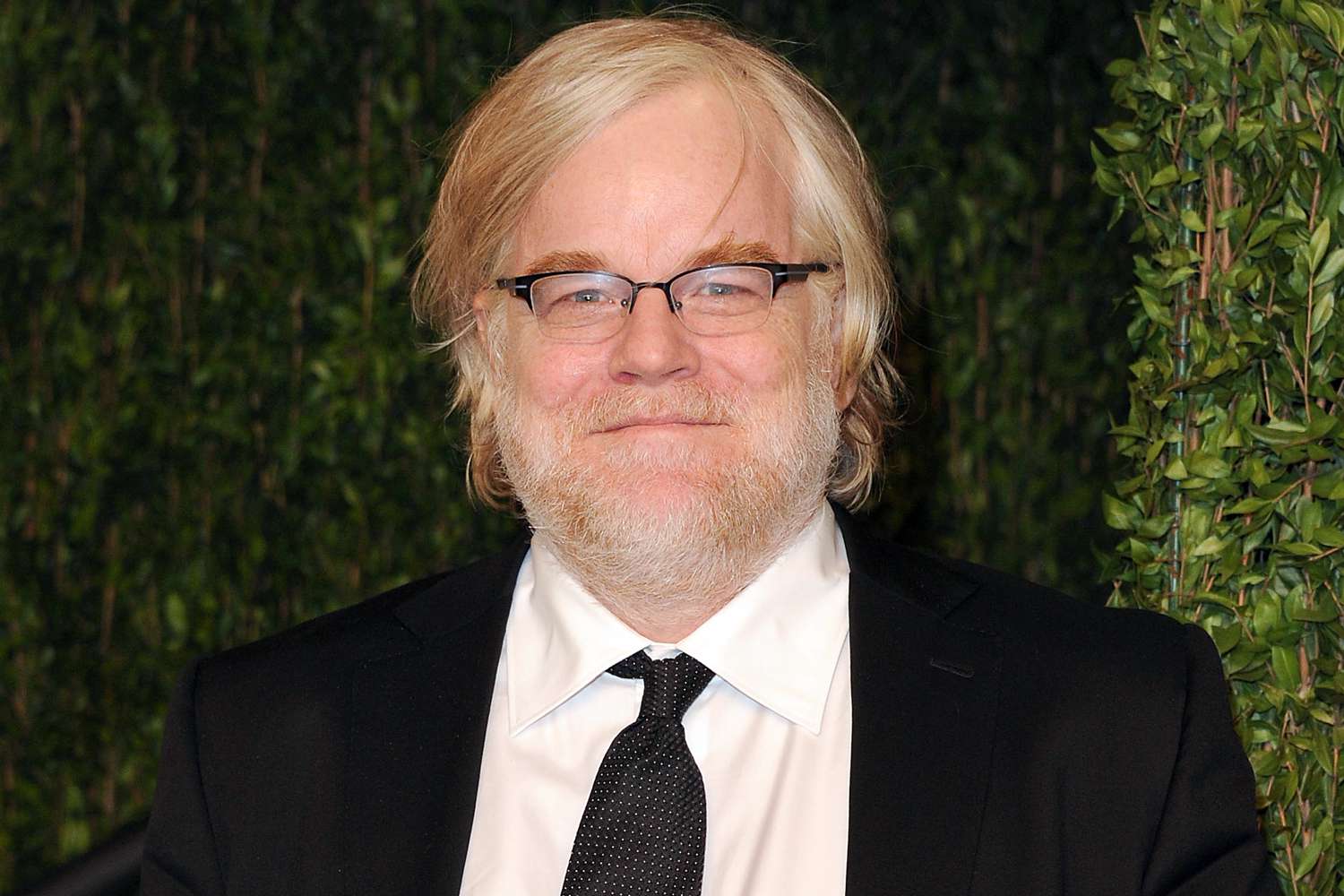
Philip Seymour Hoffman, a beloved actor known for his powerful performances, left an unforgettable mark on the world of film and theater. His sudden death on February 2, 2014, at the age of 46, shocked fans and colleagues alike. Found in his Manhattan apartment, Hoffman succumbed to an acute mixed drug intoxication, including heroin, cocaine, benzodiazepines, and amphetamines. Despite a long period of sobriety, he had relapsed into addiction in his mid-40s. His passing not only highlighted the ongoing battle many face with substance abuse but also left a void in the entertainment industry. This article delves into 35 key facts surrounding Hoffman's tragic death and its aftermath, shedding light on his struggles, legacy, and the impact he left behind.
Key Takeaways:
- Philip Seymour Hoffman's tragic death from drug intoxication shed light on the ongoing battle many face with addiction, raising awareness about the dangers of substance abuse and the need for support and understanding.
- Despite his untimely demise, Hoffman's legacy as a talented actor and dedicated family man continues to inspire actors and filmmakers, ensuring that he will be remembered forever in the world of cinema and theater.
The Tragic End of Philip Seymour Hoffman
Philip Seymour Hoffman, a beloved actor known for his powerful performances, left the world too soon. His death on February 2, 2014, shocked fans and the film industry alike. Here are 35 key facts about his untimely demise and its aftermath.
-
Cause of Death: Hoffman died from acute mixed drug intoxication, including heroin, cocaine, benzodiazepines, and amphetamines.
-
Location of Death: He was found in his Manhattan apartment in the West Village, where he had rented a second apartment to work on memorizing lines without distractions.
-
Time of Death: Discovered unconscious at 11:30 a.m. in the bathroom of his rented fourth-floor apartment by a friend sent to check on him.
-
Discovery of Syringe: A syringe was still inserted in his left arm when found, with more than 50 envelopes of what appeared to be heroin scattered around the apartment.
-
Autopsy Results: The autopsy revealed Hoffman had ingested a "speedball" mixture of heroin and cocaine, along with benzodiazepines and amphetamine.
Hoffman's Struggles with Addiction
Despite his successful career, Hoffman battled addiction for many years. His relapse and subsequent death highlighted the ongoing struggle many face with substance abuse.
-
Relapse into Addiction: After being sober for 23 years, Hoffman relapsed in his mid-40s. He had initially checked into rehab at age 22 and remained sober until his relapse.
-
Addiction Struggles: Hoffman's addiction struggles were well-documented. He was open about his addiction and had checked into a substance abuse treatment center in May 2013.
-
Final Days: In the days leading up to his death, friends and locals saw little signs of distress. However, some industry insiders noted he appeared disheveled at the Sundance Film Festival, where he was promoting his film A Most Wanted Man.
The Aftermath and Tributes
Hoffman's death left a void in the film industry. Tributes poured in from fans, friends, and colleagues, honoring his legacy and contributions to cinema.
-
Funeral and Tributes: A funeral Mass was held at St. Ignatius Loyola Church in Manhattan on February 7, 2014. The ceremony was attended by many close friends and former co-stars, including Amy Adams, Cate Blanchett, and Meryl Streep.
-
Memorial Services: The LAByrinth Theatre Company held a candlelight vigil in Hoffman's honor on February 5, 2014. Broadway also dimmed its lights for one minute in tribute to the actor.
-
Legal Consequences: The investigation into Hoffman's death led to the arrest of jazz musician Robert Vineberg, who admitted to sometimes selling heroin to Hoffman. Vineberg pleaded guilty to a lower-level drug charge and received five years of probation.
-
Family Reaction: Hoffman's family released a statement expressing their devastation over his sudden and tragic death. His longtime girlfriend, Mimi O'Donnell, and their three children were particularly affected by the loss.
Hoffman's Legacy and Impact
Hoffman's work continues to inspire actors and filmmakers. His performances remain a testament to his talent and dedication to his craft.
-
Legacy and Impact: Hoffman's death was lamented by fans and the film industry. He was described by several commentators as a considerable loss to the profession. His legacy continues to inspire actors and filmmakers alike.
-
Career Highlights: Hoffman appeared in over 50 films and one miniseries during his screen career, which spanned 22 years. He won the Academy Award for Best Actor for his role in Capote (2005) and was nominated three times for Best Supporting Actor for Charlie Wilson's War (2007), Doubt (2008), and The Master (2012).
-
Theater Work: Hoffman remained active in theater throughout his career, starring in ten and directing 19 stage productions, predominantly in New York. He received three Tony Award nominations for his Broadway performances: two for Best Leading Actor in True West (2000) and Death of a Salesman (2012), and one for Best Featured Actor in Long Day's Journey into Night (2003).
-
Awards and Accolades: Hoffman received numerous accolades, including an Academy Award, a BAFTA Award, and a Golden Globe Award. He also received five Golden Globe Award nominations (winning one), five BAFTA Award nominations (winning one), four Screen Actors Guild Awards (winning one), and the Volpi Cup at the Venice Film Festival.
Personal Life and Relationships
Hoffman's personal life was marked by his relationships and his dedication to his family. His struggles and triumphs off-screen were as compelling as his on-screen performances.
-
Personal Life: Hoffman was born on July 23, 1967, in Fairport, New York. He grew up in upstate New York and attended McQuaid Jesuit High School, where he was involved in the school's musical and drama productions.
-
Education: Hoffman received his Bachelor's degree in Drama from New York University, Tisch School of the Arts in 1989.
-
Relationships: Hoffman met his girlfriend Mimi O'Donnell, a costumer designer, in 1999 while they were working on the play "In Arabia We'd All Be Kings." They had three children together: Cooper, Tallulah, and Willa.
-
Family Involvement: Hoffman's mother, Marilyn O'Connor, is a judge in Rochester, New York. His brother, Gordy Hoffman, is also involved in the film industry.
Hoffman's Influence and Philanthropy
Hoffman's influence extended beyond his acting career. His philanthropic efforts and the impact of his work continue to be felt.
-
Favorite Films: Hoffman's favorite films included Goodfellas (1990) and Almost Famous (2000). He had the flu the entire time he appeared in Almost Famous.
-
Philanthropy: After Hoffman's death, his friend David Bar Katz established the American Playwriting Foundation in his memory. The foundation awards an annual prize of $45,000 to the author of an unproduced play, known as the "Relentless Prize".
-
Statue Unveiling: In 2022, a statue of Hoffman was unveiled in his hometown of Fairport, New York. The statue was sculpted by David A. Annand and commissioned by James Declan Tobin, a film producer who befriended Hoffman at the 2015 Sundance Film Festival. The statue was originally on loan from a gallery in New York City and was permanently installed outside the George Eastman Museum in 2023.
-
Industry Tributes: At the 90th Academy Awards, Sam Rockwell dedicated his win for Best Supporting Actor to Hoffman. Actress Cate Blanchett also dedicated her BAFTA trophy to Hoffman when she received the award for Blue Jasmine on February 16.
Hoffman's Public and Private Life
Hoffman was known for his ability to blend in with his surroundings. His public and private moments revealed a complex personality.
-
Public Perception: Hoffman was known for his ability to blend in with his surroundings. Locals in his West Village neighborhood observed him during both happy and seemingly darker private moments. He was often seen cycling through the neighborhood, walking his children to school, or having a drink at one of his favorite low-key bars.
-
Neighborhood Observations: Friends and neighbors recalled Hoffman’s complex personality. He would sometimes be seen having lunch with his son Cooper at Oliver’s restaurant, but then appear alone and depressed at night.
-
Last Public Appearance: Hoffman made his final stage appearance in the spring of 2012, starring in a production. His last public appearance was at the Sundance Film Festival, where he was promoting his film A Most Wanted Man.
Hoffman's Professional Impact
Hoffman's influence on contemporary acting is immense. His performances were often described as nuanced and deeply human.
-
Professional Impact: Hoffman’s influence on contemporary acting is immense. He was known for bringing complex life to indelible characters on stage and screen. His performances were often described as nuanced and deeply human.
-
Critical Acclaim: Hoffman’s performance as Truman Capote in Capote (2005) is ranked #35 on Premiere Magazine's 100 Greatest Performances of All Time (2006). He was also praised for his roles in Charlie Wilson's War (2007), Doubt (2008), and The Master (2012).
Raising Awareness About Addiction
Hoffman's struggles with addiction raised awareness about the dangers of substance abuse. His relapse and subsequent death highlighted the ongoing battle many people face with addiction.
-
Addiction Awareness: Hoffman’s struggles with addiction raised awareness about the dangers of substance abuse. His relapse and subsequent death highlighted the ongoing battle many people face with addiction.
-
Community Reaction: The community in the West Village where Hoffman lived was deeply affected by his death. Neighbors and friends shared stories about his private moments, both happy and troubled, which humanized him further.
Hoffman's Final Wishes and Estate
Hoffman's final wishes and the distribution of his estate reflected his dedication to his family and his desire to provide for them.
-
Funeral Details: Hoffman’s funeral was held at St. Ignatius Church in Manhattan. His ashes were cremated, and his remains were scattered to his wife and children as per his wishes.
-
Estate Distribution: Hoffman left his fortune of around $35 million to Mimi O'Donnell in his October 2004 will. The will specified that she should distribute the money to their children.
-
Philosophical Reflections: Mimi O'Donnell reflected on Hoffman’s life, suggesting that he may have known he was going to die young. She noted that he lived his life as if time was precious and always prioritized what was important to him.
-
Enduring Legacy: Despite his tragic death, Philip Seymour Hoffman’s legacy continues to inspire actors and filmmakers. His work remains a testament to his talent and dedication to his craft, ensuring that he will be remembered forever in the world of cinema and theater.
Hoffman's Enduring Legacy
Philip Seymour Hoffman's death on February 2, 2014, left a significant void in the world of film and theater. His passing due to acute mixed drug intoxication shocked fans and colleagues alike. Despite his struggles with addiction, Hoffman's career was marked by remarkable performances in over 50 films and numerous stage productions. He won an Academy Award for Capote and received multiple nominations for his roles in Charlie Wilson's War, Doubt, and The Master. His influence on contemporary acting remains immense, inspiring many in the industry. Hoffman's legacy continues through the American Playwriting Foundation, established in his memory, and the countless performances that showcase his talent. His life and career serve as a poignant reminder of both the brilliance and fragility of human creativity.
Frequently Asked Questions
Was this page helpful?
Our commitment to delivering trustworthy and engaging content is at the heart of what we do. Each fact on our site is contributed by real users like you, bringing a wealth of diverse insights and information. To ensure the highest standards of accuracy and reliability, our dedicated editors meticulously review each submission. This process guarantees that the facts we share are not only fascinating but also credible. Trust in our commitment to quality and authenticity as you explore and learn with us.


